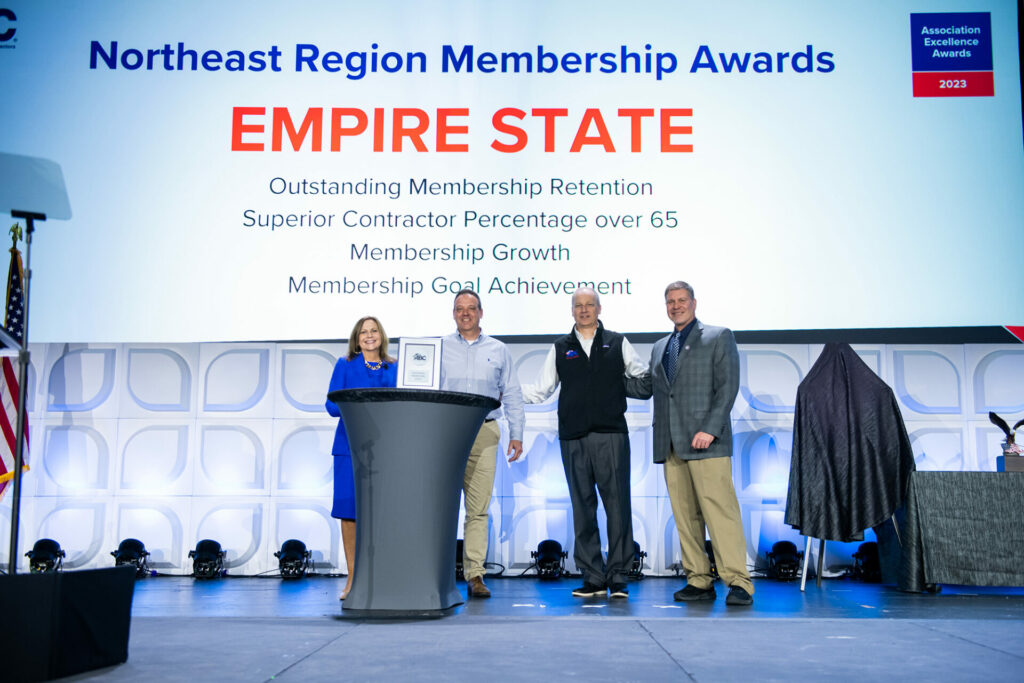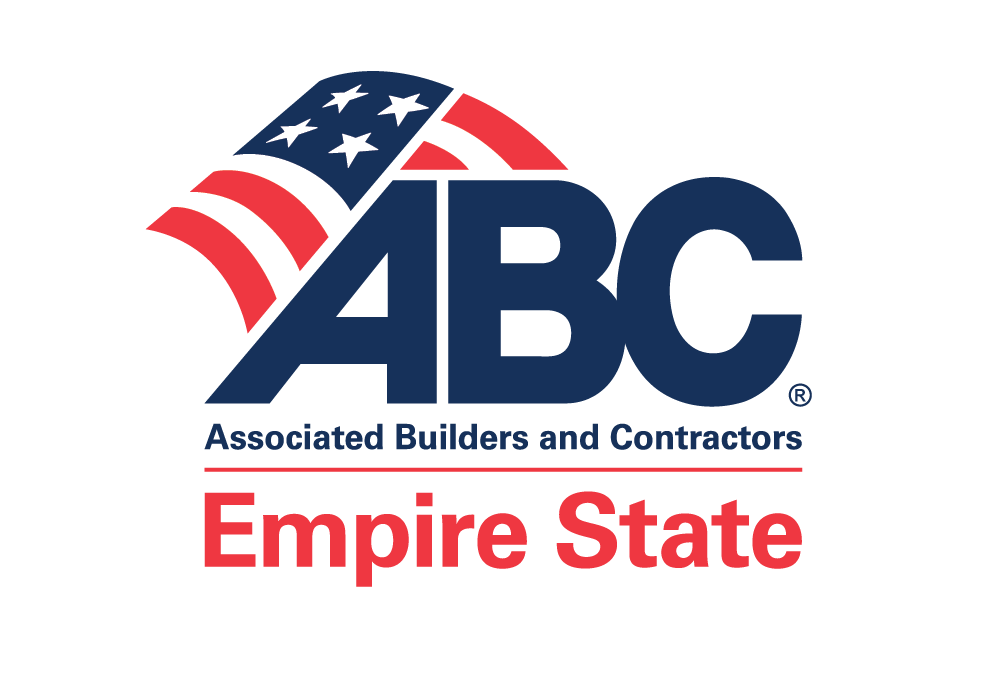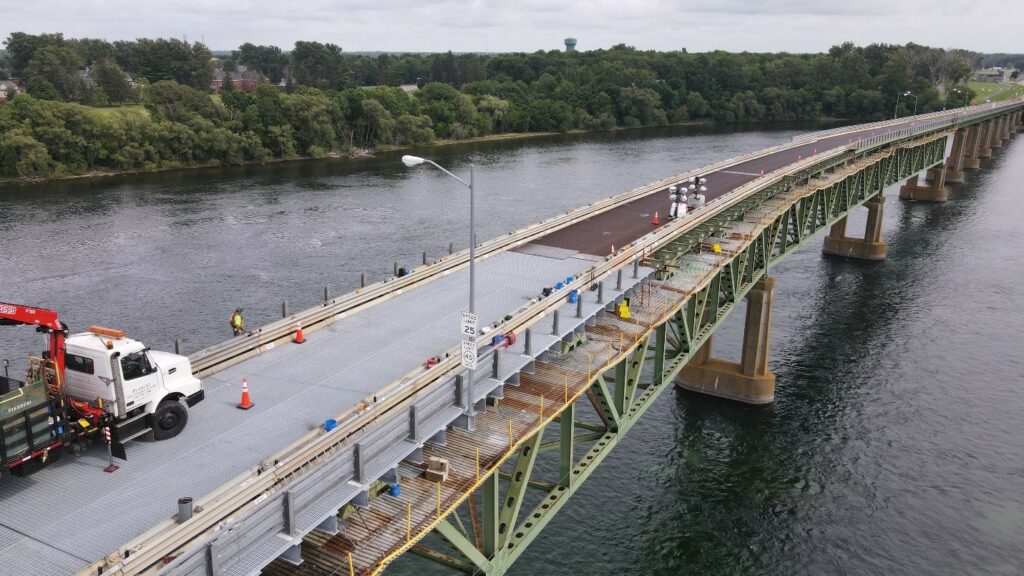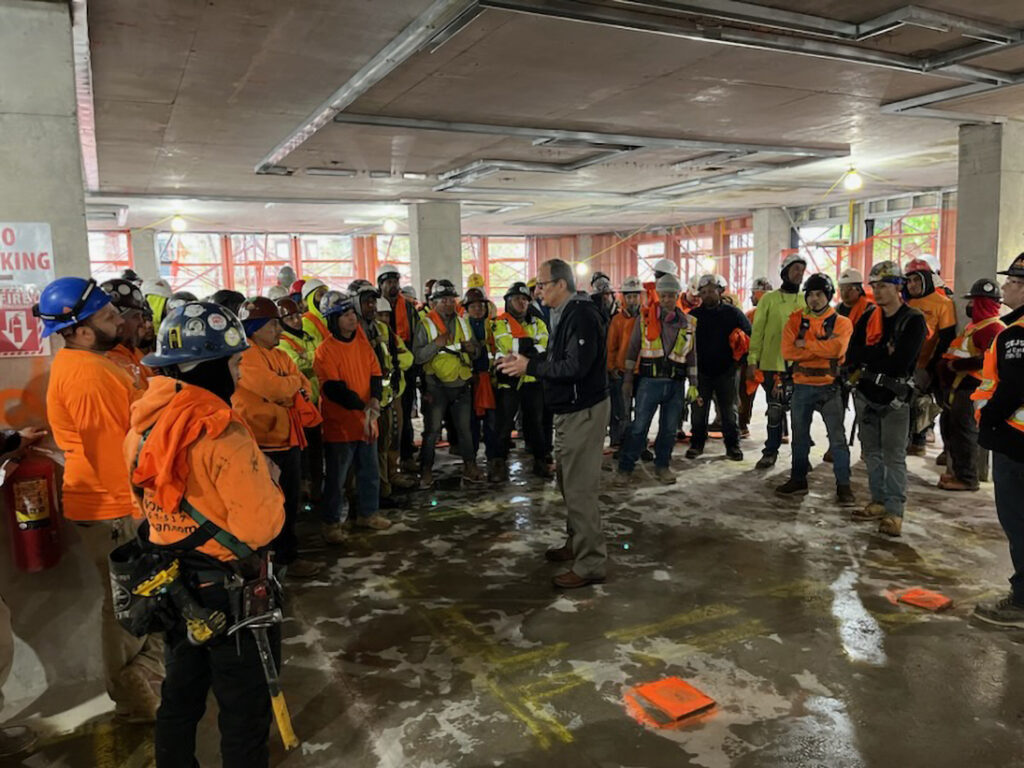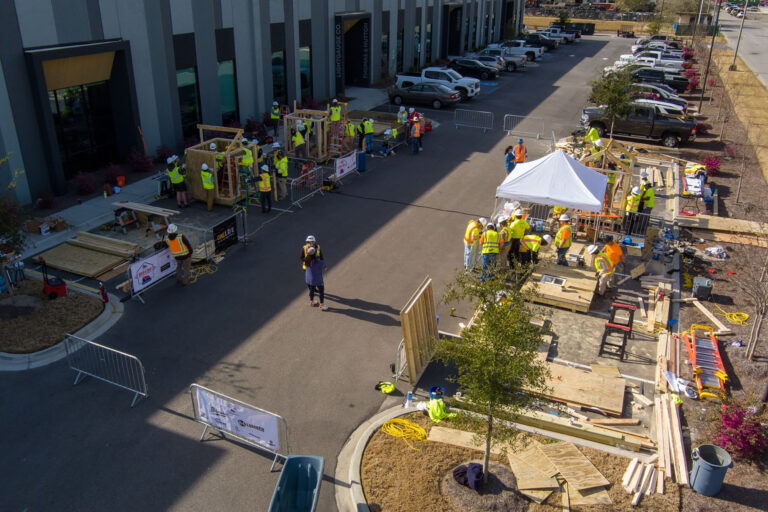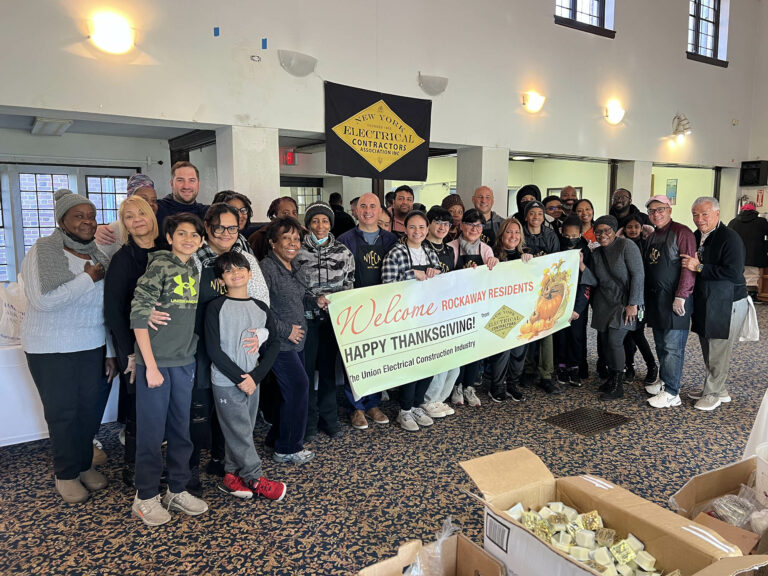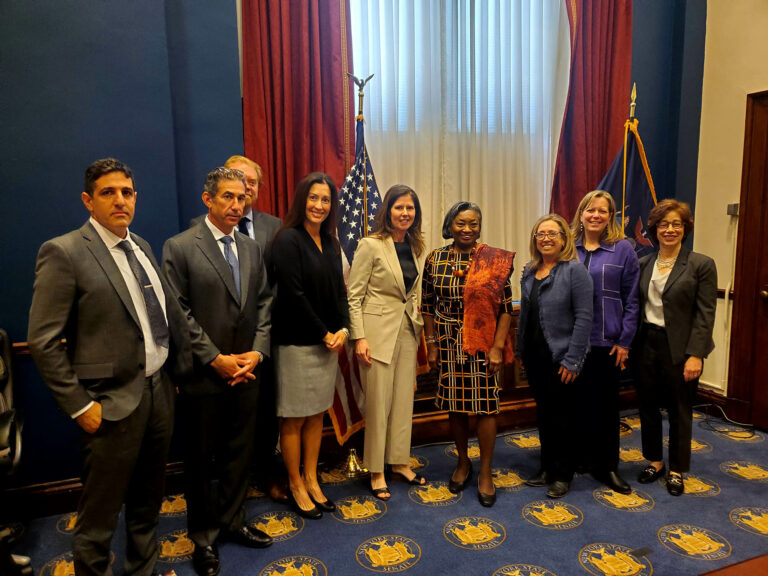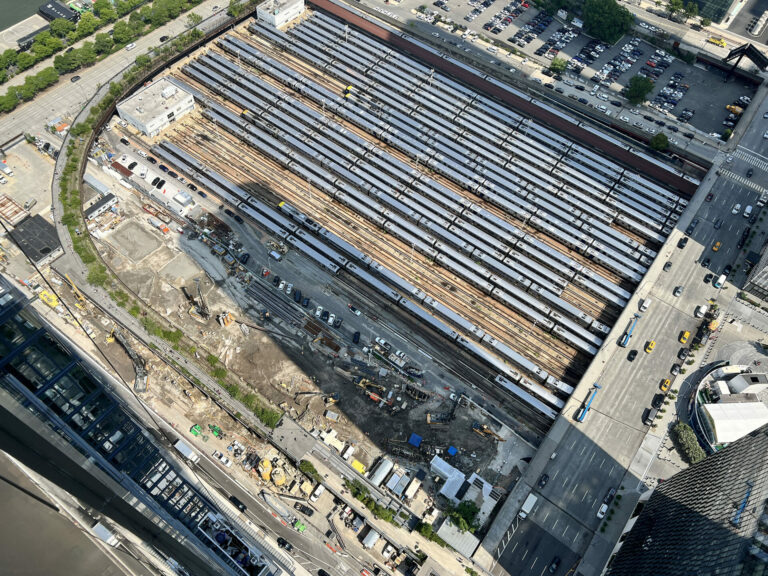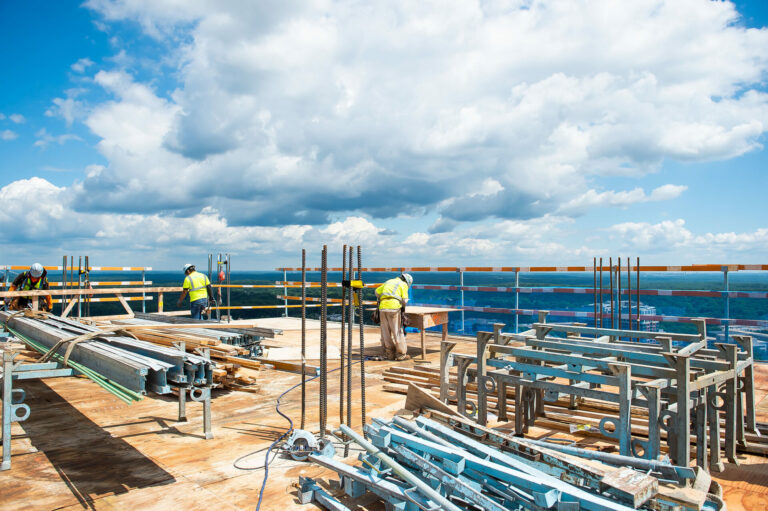ABC Empire State is the New York branch of Associated Builders and Contractors – a construction trade association representing contractors across the United States. The chapter represents more than 400 contractors across the state of New York, assisting its members with business-to-business development through networking events and other connections. Much of the work that ABC Empire State carries out is in the training and education sector. From enrolling staff in the associations’ apprenticeship program to providing craft training, safety training or professional training, the association places huge value on ensuring its members are operating at the highest standards. In addition to all this, much of ABC Empire State’s work is in the area of government affairs. According to association President, Brian Sampson, lobbying both in Washington DC and in Albany, the state capital, is hugely necessary to “fight against things that tip the scales against our members.” Topics high on its agenda are voicing its opposition to apprenticeship mandates, project labor agreements and responsible contractor ordinance.
ABC Empire State places a huge focus on safety. As Sampson explains, much of the work being done at the association is trying to change the narrative around the industry. While he accepts that a mentality still exists that construction is an inherently dangerous profession, he believes that accepting this without question is unhelpful. “We want to see people go home the same way they arrive. Our members spend a lot of time looking at safety information and offering safety classes such as the traditional suite of OSHA 10s, OSHA 30s, fall protections, ladders, and scaffolding.”
Not only does the association assist its members with the running of these courses, but it also has its own program. ABC STEP is an evaluation system that is unique to ABC and has been identified by OSHA as a best practice program. STEP is a safety benchmarking and improvement tool that, according to ABC, “dramatically improves safety performance among construction industry participants, regardless of company size or type of work.”
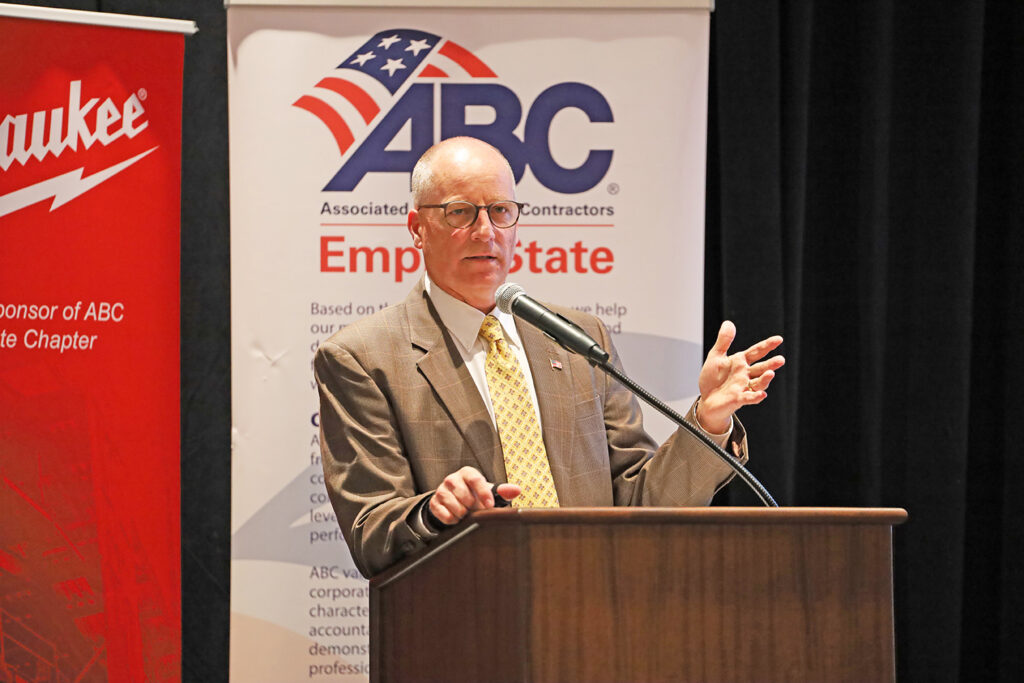
Members input information from OSHA 300A logs, workers comp reports and other safety related figures such as any expenditure that goes towards education and training. Members then receive a report showing where they stand relative to the BLS (Bureau of Labor Statistics) averages – in a tier system from bronze to diamond. Sampson explains that these gradings are all at an incredibly high standard. “For example, if you are a bronze member, you are about 200% safer than the industry average.” Regardless of the grading received, STEP will give members a roadmap with targets and goals to achieve even better safety standards.
These targets cover every aspect of a job site and members can access new safety learning in a variety of ways such as daily site talks, toolbox talks, and lunch programs. “Through STEP, members could go from being 200% better to being almost 600% better than the industry average.”
For Sampson and those at ABC Empire State, it is a hugely important initiative both for members and the industry in general. With this in mind, the association is committed to working closely with its members, guiding them through the steps involved to ensure that they see results. “We work with our members, helping them with managing investments in education and training. If they use their processes correctly, the user training and their equipment, everybody should be equally safe on a construction site and be able to go home just the same way they arrived. At the end of the day, I don’t care who you are, nobody wants to have an injury on their work site, nobody wants to have a significant injury on their work site, nobody certainly wants to have a death on their work site.”
“If they use their processes correctly, the user training and their equipment, everybody should be equally safe on a construction site.”
The benefits of the STEP program are far-reaching. In addition to ensuring that construction workers are safer, Sampson feels that it has the additional benefit of “leveling the playing field legislatively.” For him, it ensures parity between union contractors and non-union contractors. “In a state like New York that has been largely influenced by union propaganda over the years, there’s an image that exists about what non-union contractors are, and it’s a false narrative. STEP allows us to gather accurate and verifiable safety information. We can use this information when we meet with elected officials, either at the Statehouse or at the localities, and show them the real safety picture in the non-union construction community as it relates to ABC members.”
Working with legislators forms a large part of the work ABC Empire State does. The need to keep a constant presence in discussions is vital. In late 2016, a piece of legislation was introduced in New York City which mandated apprenticeship programs on certain projects. ABC Empire State and Sampson feel that this has had hugely detrimental effects on its members. According to Sampson, the legislation effectively said that “every project from ten stories up, whether public or private, would have to be built using a state registered apprenticeship program.” This mandate, he feels, was the politicizing of construction industry deaths and has only resulted in excluding ABC members from a share of the industry. “The narrative coming from the building trades was that there had been an unfortunate number of deaths in the construction industry. They said, ‘if you’re a contractor that has an apprenticeship program, you’re naturally safer and better than the industry. Therefore, we’re going to do this apprenticeship mandate.’ It had nothing to do with safety. Most of the unfortunate deaths were taking place on projects that were nine stories and below. A piece of legislation like that in New York, with apprenticeship being so difficult, is nothing more than a market grab from organized labor. They were politicizing those deaths as a means to get market share back that they lost by being too expensive. If we are really going to talk about keeping construction workers safe, then we have to come up with a plan that keeps every construction worker safe.”
With this in mind, ABC Empire State introduced its nine-point safety plan, which states that every construction worker in New York City should have OSHA 10, OSHA 30, fall protection, trenching and excavating, first aid and CPR. The process of introducing this plan began in 2017 and, thankfully, the association came through for its members. In October of that year, the city passed the most extensive site safety training requirements for every construction worker, leading to the creation of site safety training cards. These cards govern who works on sites in the city, with Sampson explaining: “Everybody has to have at least an OSHA 10, 8 hours of fall protection, 2 hours of drug and alcohol and an additional 20 hours of additional construction training – or they have to have an OSHA 30 and 8 hours of fall protection and the two hours of drug and alcohol.” For Sampson, this achievement demonstrates the core need for non-union associations. “I think that’s the role that organizations like ABC play in leveling the playing field for everybody and creating uniformity. If you are affiliated with a union or not, it shouldn’t matter. You’re a construction worker. We want to keep you safe.”
In terms of the industry outlook for the rest of 2023, Sampson notes that while the state has a “fairly significant” potential influx of money from infrastructure investment, challenges still remain in the form of inflation and rising interest rates alongside increased pricing of materials and extended delivery times. Coupled with this, there is the constant issue of labor shortages. As Sampson explains, an ageing workforce simply cannot keep up with a demand of over half a million jobs across the country. This is something, he says, his members are finding a challenge. “I don’t believe we have a single member in our chapter that isn’t looking for people right now and has more than the job openings that they would prefer.”
As one of the largest chapters in the country, ABC Empire State is working tirelessly to alleviate these challenges for its members. With education and training a consistent support alongside a strong legislative presence, achievements are being made and the playing field is being leveled. At its core, Sampson feels that it is an issue of education. ABC Empire State needs to advocate and work for its members because he feels, without this advocacy, the risk is that they may get left behind. “We have to educate, not only our members and their employees, but the general public about what’s going on. In New York, you would like to think that politics isn’t the ultimate decision maker, but it is.”









